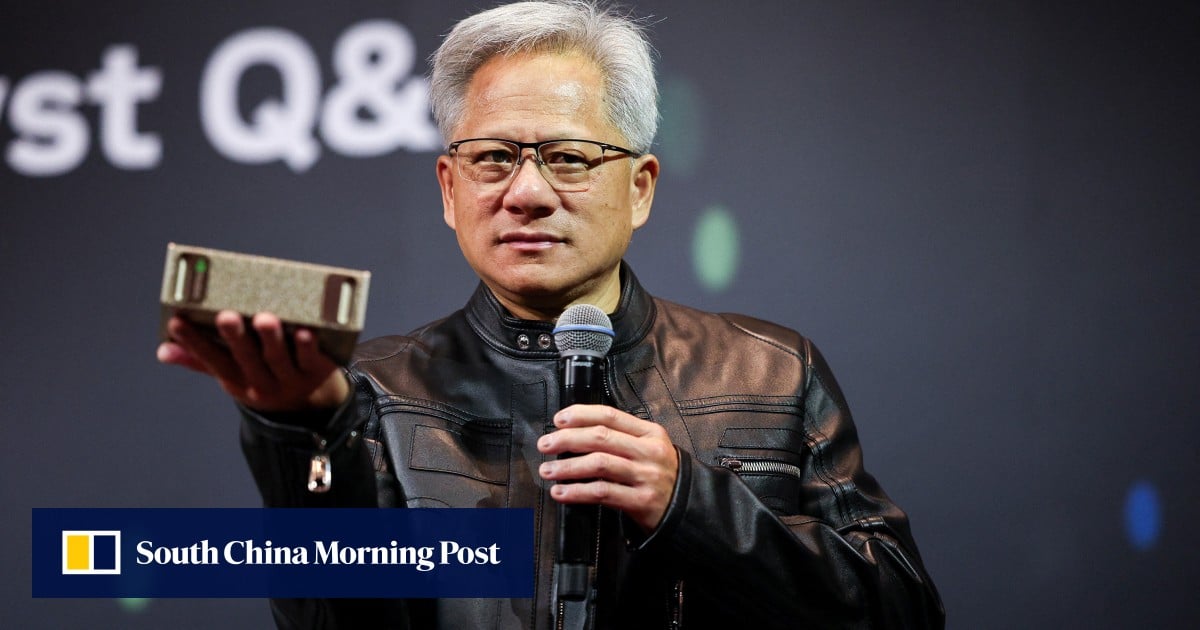Jensen Huang’s Remarks on U.S. Technology and Chinese Military Use
In a recent interview on CNN’s Fareed Zakaria GPS, Nvidia CEO Jensen Huang made significant statements regarding the apprehensions held by the U.S. government about the use of his company’s products by the Chinese military. This topic has been a focal point amidst rising tensions between Washington and Beijing, particularly concerning technology exports and national security.
The Heart of Washington’s Concerns
Huang addressed the core issue that has led to increasing restrictions on U.S. technology exports to China. The U.S. government fears that advanced technologies, especially in artificial intelligence and computing, could be wielded by the Chinese military to enhance their capabilities. Such concerns aren’t unfounded; the integration of cutting-edge technology into military applications is a common global trend. However, Huang believes that these worries may be overstated and emphasizes that the Chinese military itself may choose to steer clear of U.S. technology for pragmatic reasons.
Huang’s Assurance
During the interview, Huang stated emphatically, “We don’t have to worry about it.” His argument is grounded in the notion that the Chinese military is unlikely to reliably utilize American technology due to the inherent risks involved. He explained that incorporating U.S. products could present vulnerabilities, particularly given the geopolitical climate, where technology and surveillance are closely tied to national security interests.
This assertion reflects a broader perspective shared by several technology leaders who argue that the risk of dependency on foreign technology outweighs the perceived benefits. Despite the allure of accessing cutting-edge capabilities, they view reliance on U.S. tech as fraught with uncertainties.
Risks of Reliance
Huang elaborated on the precariousness of using U.S. technology, indicating that “they simply can’t rely on it.” This viewpoint suggests that the landscape of international tech can change rapidly, influenced by government policies and changing relations. U.S. regulations can, at any moment, restrict access to these crucial technologies, potentially leaving any military entity that has invested in them at a significant disadvantage.
This assertion raises questions about the longevity and stability of partnerships in the tech sector, especially where national security is concerned. If a technology can be rendered unusable on a whim, the reliability of that technology is inherently compromised.
Economic Impact on U.S. Firms
While Huang’s statements were aimed at reassuring the public and the government, they also shed light on the economic implications for U.S. tech firms. Businesses like Nvidia have already lost out on billions in revenue as a result of stringent restrictions that aim to cut off China from the most powerful artificial intelligence capabilities. These losses reflect the complex interplay of politics and commerce, where regulations designed to protect national security can significantly hamper growth prospects for tech companies.
These financial repercussions underscore the need for a careful balance between national security concerns and the economic vitality of tech companies. As these firms navigate a landscape of increasingly pressing regulations, they must also consider the implications of their technological innovations on global markets.
Historical Context of U.S.-China Tech Relations
Huang’s insights come against the backdrop of successive administrations in Washington that have adopted stringent measures against China. From tariffs to export controls, the approach to containing the rise of Chinese technology has evolved as a national security strategy. The emphasis has been on preventing any potential advantage that adversaries could gain through U.S. technology, a sentiment that has only intensified over time.
With this historical context in mind, Huang’s comments serve as a reminder of the ongoing dialogue surrounding technology, security, and international relations. It reflects a growing acknowledgment within corporate America that the implications of exporting advanced technologies are far-reaching and complex.
Conclusion
As the discussion around U.S. exports to China continues to evolve, Jensen Huang’s assertions prompt valuable conversations about reliance, risk, and the future of technological innovation. The balance between national security and economic interests remains a crucial narrative as both Washington and tech leaders forge pathways in a rapidly changing global landscape.


